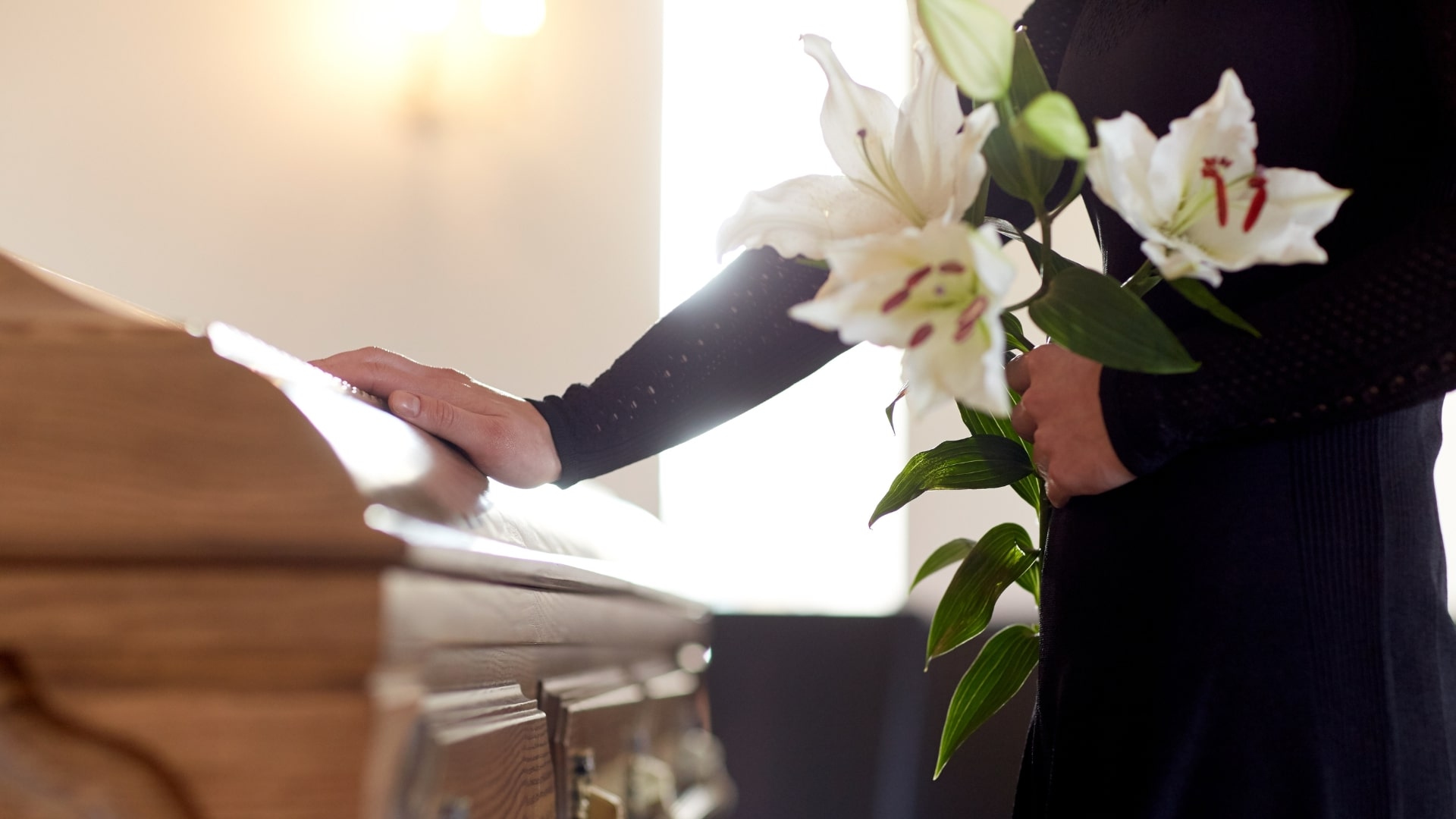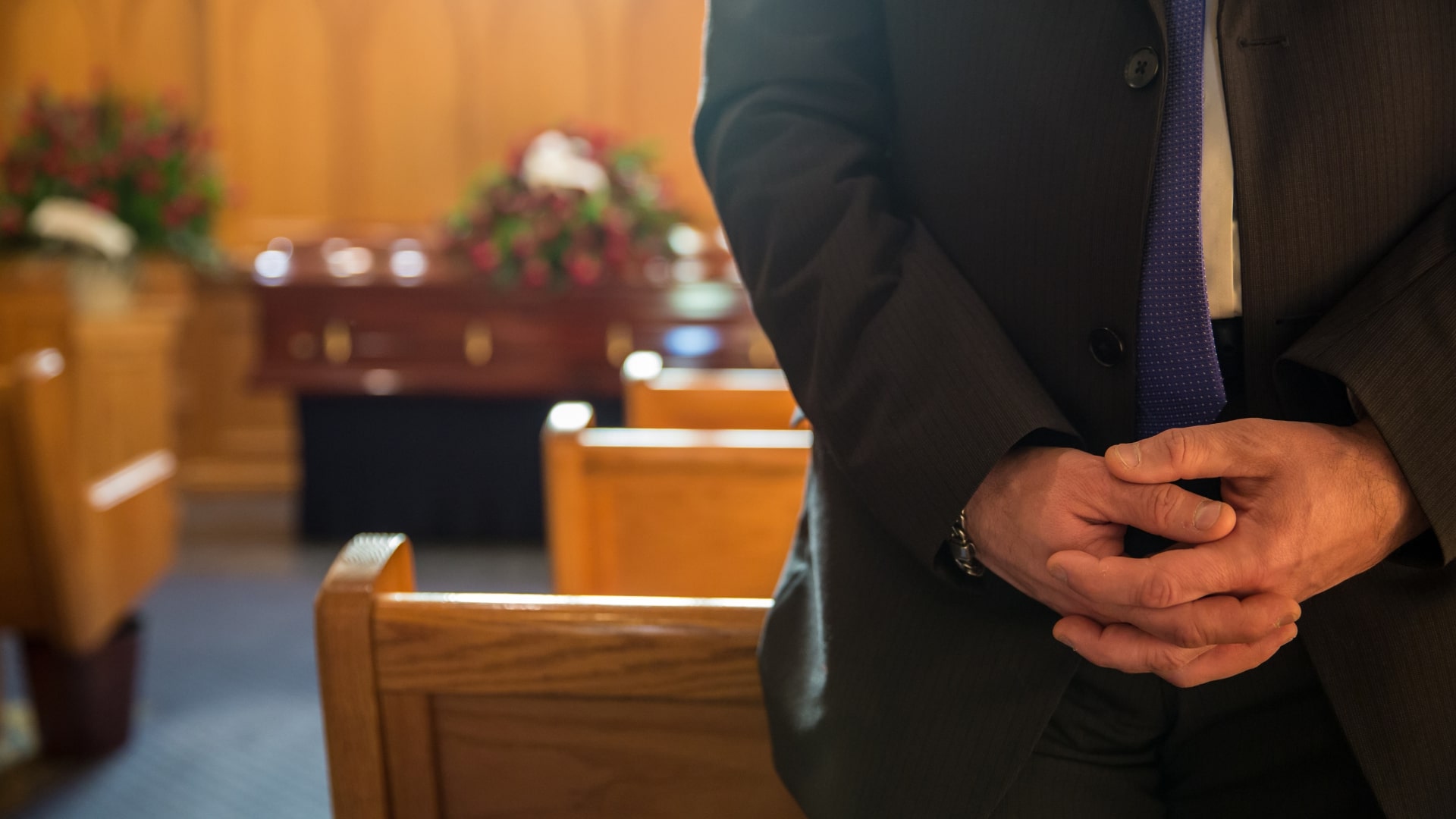Funeral Etiquette
Like most things, the accepted customs of attire and behavior at funerals have changed over time, but the core principles of kindness, respect, and consideration remain unchanged. At Slater Funeral Services, we understand that attending a funeral can feel unfamiliar or even intimidating, especially if you’re unsure of the proper etiquette.

Making the Most of a Difficult Time
Attending a funeral is a meaningful way to show support, express sympathy, and honor a life that has passed. It is essential to be respectful of the emotions of family members, as well as consider personal, ethnic, and religious factors that may need to be taken into account.
Here are a few things expected of you:
Sometimes, we are at a loss for words when encountering something as final as death. Simply saying, “I’m sorry for your loss,” is usually enough. Your presence speaks volumes. Be respectful, listen attentively when spoken to, and offer your own words of condolence. Even quiet, heartfelt support can bring comfort during such a difficult time.
These days, attire at funeral services can vary, but that doesn’t mean anything goes. Sometimes, the deceased may have expressed specific preferences for the dress code, such as requests to avoid wearing black. When in doubt, it’s always best to dress conservatively and respectfully. Choose subdued colors with modest styles, and avoid anything too bright or attention-grabbing unless it aligns with the family’s wishes.
Sign the register book when you arrive at the funeral. In addition to your name, include your relationship to the deceased: co-worker, neighbor, former classmate, a friend from church or the gym, or a casual acquaintance from the gold club. This small gesture helps the family recognize and remember who offered their support during a time when names and faces can blur together.
Whether it’s sending flowers, making a donation to a meaningful charity, or offering help to the family at a later date, thoughtful gestures are always appreciated. Whatever you choose, be sure to include a signed card so the family knows who the gift came from and can acknowledge it later. If you’re unsure what to give, consider using one of our trusted partners to arrange the delivery of food, flowers, or a meaningful gift before, during, or after the service. Remember, it’s the sincerity behind the gesture that matters most.
It may feel a bit awkward, but remember that for most families, the grief doesn’t end when the funeral does. It is always helpful to share a memory or offer a simple message of support that can mean the world in the days and weeks that follow. One thoughtful way to stay connected is by leaving a condolence on our Obituaries Page. Simply select the individual’s name and click “Send Condolence” to share your message.
But, What Shouldn’t You Do?
If you attend during calling hours, please know that your presence, even if brief, is meaningful. A short visit to express sympathy, sign the register, and offer condolences is perfectly appropriate and always appreciated.
If there is an open casket, you are not obligated to view the deceased. Follow your comfort level—paying your respects in your own way is entirely appropriate.
Children can be a meaningful part of the grieving process, especially if they have a connection to the deceased. However, it’s important to consider whether they’re emotionally ready and able to behave appropriately during the service. If you feel your child might become restless or disruptive, it may be best to arrange for childcare or take advantage of our on-site, child-friendly playroom. When appropriate, inviting children to participate can help them understand and process the experience in a healthy way.
Simply say how sorry you are for their loss, offer up your own name, and how you knew the deceased.
Laughter can be a powerful part of healing. Sharing lighthearted stories or joyful memories about the deceased is not only appropriate, but it’s often welcome. These moments of warmth help celebrate a life well-lived and remind everyone of the impact that person had. Just be mindful of the setting and tone; if others are reminiscing or sharing stories, feel free to join in. Speaking about the deceased in a positive, uplifting way can offer comfort to grieving hearts.
Switch your phone off before entering the funeral home, or better yet, leave it in the car. All too often, we see people checking their cell phones for messages during the services.
Everyone makes mistakes, and you can be sure that an apology may be all that’s needed to mend and soothe.

After the service, always remember to continue to offer support and love to the family of the departed. The next few months are a time when grieving friends and relatives may need you the most. It’s always best to let them know that your care and support did not end with the funeral.
Want More Advice on Funeral Etiquette?
Perhaps you’re concerned about a specific upcoming event. At Slater Funeral Homes, we want to provide answers to your questions. Give us a call today at (412) 563 -2800, and feel free to ask away!

